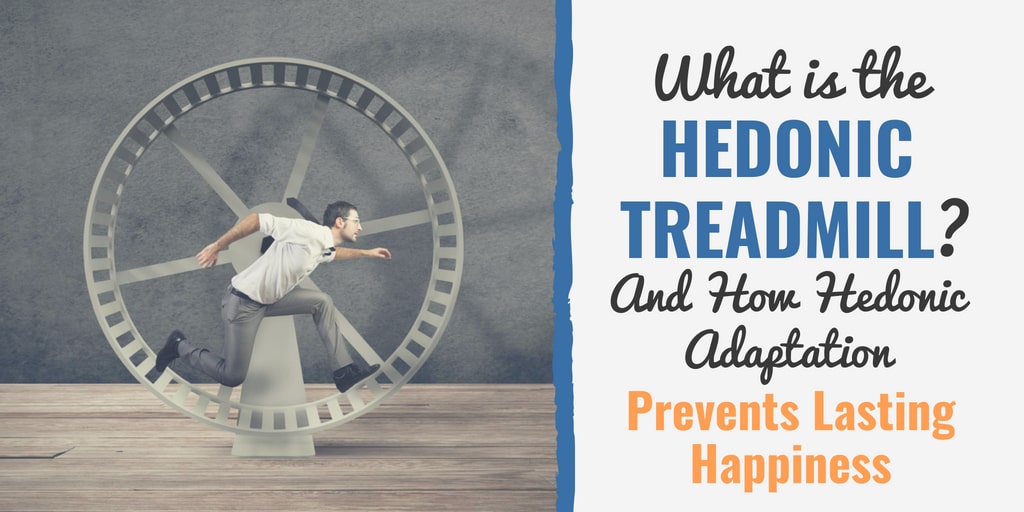
You can’t always predict the major events that will shape your life. When you’re ready, finding ways to experience both personal pleasure and purpose can help bring you closer to a new sense of happiness - even if it doesn’t feel exactly the same as the happiness you experienced before a major loss.Īre there ways to limit the effects of hedonic adaptation and experience a greater level of happiness? If you’ve experienced a life event that has left you reeling from sorrow or grief, a period of mourning is natural and healthy. However, both hedonic and eudaimonic happiness help you build resilience - the ability to recover from setbacks and losses. Researchers have found that eudaimonic happiness takes longer to lessen than hedonic happiness. When we do things to help other people, or when we do something to grow personally or to build a sense of purpose in life, the happiness we experience is less susceptible to the hedonic treadmill. EudaimoniaĮudaimonia, another aspect of happiness, is the fulfillment we experience from pursuing meaningful activities. But any activity might qualify, from reading to playing video games. The term refers to the immediate happiness we experience when we do something we like or avoid doing something we don’t like.įood and sex are two frequently discussed categories of hedonic pleasure.

One of the many useful ways to categorize different kinds of happiness is to distinguish between these two sources of pleasure: hedonism and eudaimonia. That may be because people don’t think of an occurrence on its own, but make a sentimental association with it.įor instance, when admiring the pot holder your child knitted for you at camp many years ago, the upswell of delight is less about the beauty of the pot holder than it is about the child who crafted it. They found that when people associate sentimental value with an event, the happiness they get from it remains more constant over time.


In a 2015 analysis, researchers compared the results of seven studies. Your own sentimentality can even prolong feelings of happiness. If you’ve attained something that you value for its own sake, whether or not anyone else wants it, your satisfaction may be more likely to persist. Studies show that when you pursue something in part because other people have it, the happiness you experience wears off swiftly. Novelty also wears off fairly quickly, so if you’ve moved to a new city or taken a new job, you may feel an increase in happiness because you’re experiencing something new.īut, as you grow accustomed to your new situation, the feelings may subside somewhat.Īnother factor that can influence the duration of your feelings has to do with whether you compare yourself to others in seeking happiness. Sensory experiences - those that make you happy because they involve good physical sensations - and intensely emotional experiences both tend to be less durable than other satisfactions. Why some events are more prone to hedonic adaptation than others So, what makes an event more likely to lead to long-term happiness instead of effervescent pleasure? The pleasure or loss of pleasure can cause a long-term (possibly even permanent) change in personal happiness. People who divorce or are widowed are likely to be less happy for a long time afterward (again, generally speaking). Researchers also point out that some life experiences do, in fact, tend to promote lifelong shifts in emotional states.īroadly speaking, people who marry are likely to be happier over time than those who don’t. These measures are often open to individual interpretations. Many studies use surveys, interviews, and subjective scales to account for personal happiness. But some experts would add a note of caution.įor one thing, the definition of “happiness” is notoriously hazy, as is the definition of well-being, making it hard to compare studies - and human beings, for that matter. Some psychologists say as much as 50 percent of your capacity for happiness is inherited. The hedonic treadmill is based on the idea that people generally return to a level of happiness that’s consistent with their personality and genetics.


 0 kommentar(er)
0 kommentar(er)
